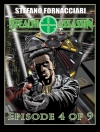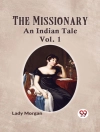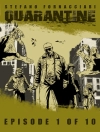In Book (8), the narrator, Bassam Bourasin, is released from prison following the massacre of 300 people in his hometown, ‘Ouja. His mother and his fiancee Dalila were among the victims.
The narrator felt out of place and traumatised in his apartment. He barely recognised his hometown and felt he was either the real Bassam Bourasin or ‘Ouja was not the real ‘Ouja. The trauma had upset him since he arrived, and he was morally and physically exhausted. The survivors suffered indescribable concussions, and a thick cloud of melancholy and sorrow descended over the community. The atmosphere in ‘Ouja was one of desolation and grief. The Barbarians have half-destroyed and ravaged the town, and the electric and telephone lines have not yet been restored. Even the countryside is described as a desolate area of rough, magnificent cliffs and harsh, tawny flora scorched by the sour acid sun’s smouldering beams. The people of ‘Ouja are grieving the loss of their loved ones, and the graveyard is crowded with mourners. The armed militia is patrolling the streets, and sadness and gloom hang over the town.
Mr Houssine, Bassam’s father-in-law, said the killers came at daybreak or earlier, rushed into the police station and the National Guard Headquarters, killed everyone, and then turned their rage to the stores and shops. They broke the doors with explosives, plundered, looted, and thrashed, while others broke into their homes randomly. They raped, robbed, killed whoever resisted, and rampaged relentlessly for hours. The terrorists were dressed in long robes and sandals, with long beards and masks on their faces.
The big question remains: who did it? In Arab countries where there is a conflict between secularists and Islamists, the same issue has come up numerous times. From Algeria in the nineties to Somalia, Iraq, Libya, Egypt, Tunisia, Syria, Yemen, and Sudan.
In the novel, Mr Houssine believed that the massacre in ‘Ouja was God’s will and that people should accept it. When Bassam asked him how such a thing could happen in a country where people pray to God five times a day, Mr Houssine told him not to curse and to accept God’s will. He also suggested that the criminals who committed the massacre took advantage of God’s will more than those who prayed and did everything to please Allah.
One assumption about the massacre’s perpetrators in Ouja was that they could have been the Islamists who took over the government and badly needed foreign neutrality to crush their local rivals. Such an episode may discourage Western nations from providing help to the ousted president still fighting them in the South. Another assumption was that both parties could have perpetrated the massacre for different reasons.
Daftar Isi
Epigraph
Part TWO: Glorious Days in the Golden Age
Notes
Epigraph
Chapter One: Return of the prodigal son
Chapter Two: Those who did not board the Arch of Noah
Chapter Three: The Indian showed up
Chapter Four: The Nightmare
Chapter Five: Encyclopedia of ‘Ouja
Chapter Six: Havoc
Chapter Seven: The One-Eyed Boss Vanishes
Tentang Penulis
Hichem Karoui is the author or co-author of over 50 published books, including literature (novels), studies, essays, and monographs (on geopolitics and international relations).Social scientist academic, Senior researcher and consultant for governments and private companies.












